Get to Know David Toney - PODCAST TRANSCRIPTION
May 2, 2023 at 6:00 a.m.Editor's note: The following is the transcript of a live interview with David Toney of Adams and Reese. You can read the interview below or listen to the podcast.
Speaker 1: Welcome to Roofing Road Trips with Heidi, explore the roofing industry through the eyes of a long-term professional within the trade. Listen for insights, interviews and exciting news in the roofing industry today.
Heidi J. Ellsworth: Hello, and welcome to another Roofing Road Trips from RoofersCoffeeShop. My name is Heidi Ellsworth and we're road-tripping across the country to meet up with a gentleman that I am so excited to introduce to the roofing industry. Not that he's new, but I'm telling you, we are so excited to be visiting with David Toney of Adams and Reese, and hearing of all about Adams and Reese and what's going on out there in construction law. David, welcome to the show.
David Toney: Thanks, Heidi. I really appreciate you having me.
Heidi J. Ellsworth: Adams and Reese has just come on like crazy into the roofing industry. I know you did roofing before, but we just love working with you all and learning what's happening and the risk factors out there for contractors today. But before we start that, let's start with you and maybe you could introduce yourself, tell us a little bit about Adams and Reese.
David Toney: Absolutely. So I sit in Houston, Texas, I have been a part of this firm for a while now. I guess I'll go a little further back. I grew up in East Texas in a little town called Huntsville. Was introduced to construction by my uncle who was a small town home builder, and I think it was a ploy between him and my mom to get me off to law school because I thought I would work for him. But after a summer of laying concrete and puttying holes, I quickly applied to law school. I went to Baylor Law and settled in Houston with a small firm before Adams and Reese for about 12 years, doing construction law, construction litigation throughout the Southeast, primarily Texas. And then in 2008, Adams and Reese came calling. I had friends all across the Southeast, but in Houston, Louisiana, primarily, from Adams and Reese. They needed somebody to help them with their construction team. So in 2008, I joined up with some friends over here.
The construction team already existed at Adams and Reese, and we had a nice thing going. We had about maybe 40 members from Houston to New Orleans to Mobile and Jackson and over to Florida. That's how we started. I've grown that team. The biggest and greatest thing we've done was joined forces with Trent Cotney last year and took the team to a new level. We were very well known in the southeast, nationally, at least my practice. And then adding Trent, he and I had known of each other and bumped into each other and it was really truly a one plus one equals three situation.
Heidi J. Ellsworth: I love it. And you and Trent are co-chairs of the construction team with Adams and Reese. So tell us a little bit about that. How does that all work?
David Toney: Yeah, it's fantastic. Adding Trent and his fine team took us to almost 80 lawyers. Both Trent and I were in the top 10 15 construction practices according to Construction Executive before we joined forces. Trent was obviously the roofing guru. I spent the early part of my construction law career in a weird spot, reaching a lot of window and door manufacturers. Trent being the roofing guy, I was the window guy. We had some overlap and actually had bumped into each other in conferences. Putting our teams together has really been amazing. We added Denver where Trent has a few lawyers that are really well known. They're great construction lawyers.
Heidi J. Ellsworth: Yeah.
David Toney: We added Charlotte with one of the finest construction lawyers in North Carolina, Ashley Poplin, that was part of Trent's team. And we had offices really in the Gulf South, I'll call it, Houston, New Orleans, Jackson, Atlanta, all the way over to Tampa and Jacksonville and then up to DC. And so Trent and I putting the team together, we'll probably be, knock on some wood, I hope we're top 10, top five. The goal is to be number one and I think the two of us will get there together. And it's really been fun. It's really added a layer that both he and I were doing some really cool stuff. But this puts us in an area where we can do really large projects. We can do what we started out doing and still do on the smaller, even residential guys that have a truck. And we're driving around. Our team is really multifaceted. I'm really proud of the way it's come together. And I think Trent would tell you he's very happy. So it's been fun.
Heidi J. Ellsworth: Having met you now and getting to know you and knowing Trent for quite a while. If you guys aren't number one, I'm going to be shocked. So, that's just an obvious to me, that's going to happen. And it's exciting with all the expertise that Adams and Reese brings across the board. I think that just has offered so much to the industry overall. But can you share with us what are some of your areas of construction law expertise?
David Toney: Sure. So I do a little bit, I guess I'd break my practice into two areas. One is I'll call it contract documents, construction documents. And then the second is disputes. Within the first bucket I have done best practices around contract drafting for almost 26, 27 years now. Did a lot of work with manufacturer suppliers on their product package, I'll call it, warranties, installation instructions, all the product literature and then how all that should go together and best practices to hopefully best protect themself of really a risk avoidance practice is what we've done for a long time. We still do a lot of that. A big part of the team are not litigators. They are construction document folks, and that's what they do all day long. The second bucket is what it sounds like. It's project claims, construction claims, delay claims, and then those that unfortunately go to litigation arbitration. And both Trent and I are board certified arbitrators with the AAA and with the ICDR. So we have some expertise that's unique because we sit on both sides.
Heidi J. Ellsworth: Yeah.
David Toney: We're advocates, litigating arbitrating disputes for our clients, but we're also actually on the arbitration panels that decide those. So we can bring a unique insight on how folks should... Unfortunately, if they get in a dispute, I think we are a great spot where we can advise them on what goes on behind the curtain.
Heidi J. Ellsworth: Behind the scenes. And really what you just said, it is all about mitigating risk ahead of time, so knowing what's going on, having your documentation in place, we hear that all the time. Document, document, document. So let's talk a little bit along those lines of what you're seeing around litigation, construction defects and being a subcontractor.
David Toney: I hate to say it's certainly not getting any easier for subcontractors and suppliers. 10, 15 years ago, if you were added to a construction defect lawsuit and you were a supplier of roofing materials or even an installation subcontractor, you could probably sit in the corner as long as you weren't the guy that really screwed up and they would leave you alone. And very few times where you actually asked to contractually agree in a contract document to agree to defend and dignify, hold harmless, make an additional insured, whoever your customer was, usually a builder, developer, maybe somebody further up the stream that's closer to the project than you are, that is commonplace now. It is unfortunately all about what the insurers can push down. And the big builders, big contractors can push down to the subs. And their insurers are making them get contracts that say that the subs and the suppliers indemnify them, defend them, make them additional insurance on the subs policies.
And that has really changed the game. Lawyers for the big developer builder contractor used to leave everybody alone and just go fight it out. And if it went wrong, they'd come back and see you. Now, unfortunately, 99% of the time everybody's going to get dragged into these terrible lawsuits and it's very, very expensive.
Heidi J. Ellsworth: Yeah.
David Toney: I guess the final thing I would say is it's really hard. I have a smaller regional manufacturer here in Southeast Texas do really good work. They've never ever had a contract. All they do is supply product and their insurance carrier is demanding for them to get insurance that they go get these contracts in place, even with the mahogany wood provider and just silly stuff. So the insurance market's gone nuts just like the, I guess the lawyers.
Heidi J. Ellsworth: Trent and I talked about this a long time ago, is that I have a basic fear of the legal and the law. And he's like, there's the heroes that protect the industry. And then that's why you have to know what's going on because there's a lot of people out there who are not looking to watch out for the subcontractors. So that makes me happy that you all are, because that is so important that roofing contractors understand, especially those in obviously new construction or big commercial jobs, understand the liabilities involved.
David Toney: It's very, very important. And like I said, I think it's now the industry, it's such a well-known issue for everybody that insurance carriers, they're requiring it from D.R. Hortons and the Turner Constructions of the world all the way down to mom and pop that are just getting started. And it's onerous, it's tough. And you do need lawyers that... We actually help this manufacturer deal with his insurance carrier also, trying to help at the very beginning. And then if they have to get the contracts in place to get the insurance, we do that. And then hopefully they never get in the dispute, but we'll help them if they do.
Heidi J. Ellsworth: Along those same lines, I think there is a lot of fear out there, what's going to happen, who's going to come after me? Because it's not, it's money for sure, but it's also stress on the business that really causes it. And so when we're talking about personal injuries and really what's going on around there, there's a lot going on with the labor shortage. And now we're talking about even more crews who maybe are working for roofing companies. So what are you seeing in that area?
David Toney: That has been a problem for a long while and it's worse. COVID somehow made it worse, for a multitude of reasons, but there's just a shortage of folks going into the construction trades. I think you could go to any local industry organization luncheon, and you're going to hear from a president of a construction organization how they just can't get labor. And the labor they do get is not well-trained. It's just a long process. I have a couple college kids and they ought to be thinking about going into electrical. I think you go open up an electrician, be an electrician these days, you can do better than coming out as a business major.
So kids need to think about that. And companies and owners of companies like us need to make it worthwhile for everybody to get into construction. And then we need to train them. Hopefully eventually the shortage of folks will turn. But training is a big deal. The accidents you see, and certainly the ones that end up in personal injury and unfortunately death, a lot of times it's somebody took a shortcut or somebody just didn't know. And that's maybe even worse.
Heidi J. Ellsworth: And it really goes back to all the work that I know Adams and Reese is doing with the National Roofing Contractors Association as general counsels. But what you're saying is training, again, it goes back to that very beginning of how are you mitigating risk upfront by well-trained crews? I know how much you do with OSHA and training on that. It really it can make a difference for the crews that we do have.
David Toney: Absolutely. And the companies that really take time and put care into training their folks, they're going to have less claims, they're going to have less incidents. It's a proven stat, and you're right, we try to send folks to all the industry organizations and help where we can. We have lobbyists in DC that are helping write laws and help our companies and our clients around issues like training and labor shortages and every way we can help, whether it's on the governmental side or the claims side or the insurance side. And then we have folks on the team that all they do is labor and employment issues, which is obviously a big deal in roofing and generally in construction.
Heidi J. Ellsworth: There's a lot going on the job sites that we need to be watching out for, including delay claims, material shortages. Let's talk about what contractors, all these contractors, Tony or David, have come through this material shortage and everybody's saying, well, we're pretty good now, we're back, but what are you seeing out there?
David Toney: That's probably true. It is better than it was two or three years ago. But the way our world that we live in as litigators is, it usually takes two, three, four sometimes five years before you see the actual dispute and it hits a courthouse or an arbitration or a claim situation. And we are still seeing delay claims come across our desk in the form of claims and dispute work, whether it be litigation or arbitration. It's usually due to product scarcity. It's still the same things. We can't hit the schedules that we agreed to. And now maybe we are, it's getting a little better. But I will tell you that where 10 years ago, we'd have a few delay claims a week. We were having dozens bathing-
Heidi J. Ellsworth: Yeah. All the time.
David Toney: ... and it hasn't slowed up. It really is just very difficult to manage customer expectations. And I think our sales guys are out there trying their best, but there's a lot of times a disconnect between sales and production. And then what kind of schedule did you agree to? And was it just too aggressive? And there are things like material shortages that you just can't control.
Heidi J. Ellsworth: When we're looking at this too, with everything that did happen during, with all the material shortages, there was a lot of changing of products and specifications and materials that could have, like you said, even a longer term effect on our contractors. How are those products, how are those changes and specifications going to perform?
David Toney: Absolutely. And then what did your customer expect they were getting? We probably get a few of those a week where the owner thought they were getting X, but they got Y and somehow it wasn't communicated upstream. Those happen a lot. And we just always counseled, counsel your people to do their absolute best to manage those customer expectations and get in front of it. And unfortunately, it's tough. And while we may be coming out of it a little bit, we're still seeing it.
Heidi J. Ellsworth: Yeah, that's good to know too, because I think that's really important for the everyone, manufacturing, distribution, contractors. The communications have improved tremendously over the last year, couple years, but what I hear all the time, document, document, document, make sure those change orders are signed. So, okay, another biggie that I wanted to talk about that we're seeing a lot out there are cyber attacks and it's scary on all levels. What are you seeing?
David Toney: Cyber has really become a big deal, obviously in the news you see one a day that somebody, some major corporation's been hacked. And I had a client in manufacturing that had a double whammy of not only had COVID hit, but right as COVID hit, they got an attack that shut down all their plants across the US and they were unable to make product. This went on for quite a while. So they did have cyber insurance that responded, but you talk about delay claims when you've been hit by a cyber attack, your plants go down, you can't produce your products. So that was awful. And that's happening more and more. A lot of criminals will get involved and somehow figure out a way to get checks to go to the wrong places.
Heidi J. Ellsworth: Yes.
David Toney: We've had contractors that were trying to do a wire to this, that or other company, they've been intercepted by the cyber criminals. And then unfortunately then end up having to pay twice. So it's been real important. We've been counseling folks, and most have gone to this, but you've got to have cyber insurance now. It's just widely known. It happens. From the wires and the checks to the real big attacks that shut your company down. You really need that in your arsenal so that if something goes horribly wrong, hopefully you have an insurance carrier that you can look to that can help you recoup some of what you lost.
Heidi J. Ellsworth: Yeah, we're seeing the same thing. Obviously we live in a digital land. Our biggest thing is cybersecurity, and we're always looking at it, how can we be more safe? What's going on? But it's scary out there. And for contractors or for people who are not used to that kind of technology, it's even worse. And so I'm glad to know that you guys are on in the front of that. That makes me feel good, along with everything else that we've talked about. So how can contractors get engaged with Adams and Reese?
David Toney: Well, it's real easy. We're out trying to broaden the brand and let everybody know what we're up to. Thank you for providing this avenue to do that. But we are very easy to find Adamsandreese.com. We spend a lot of time out nationally at conferences and industries, trying to make sure everybody knows what we're up to and how we can help. I would say from Denver to Houston to New Orleans and Alabama and Atlanta and Florida up to DC, and all those markets that are booming like Nashville, Charlotte, Houston, think about us and reach out really with anything. From, like I said, we have labor and employment lawyers on the team that do handbooks and help you with your employment policies and practices all the way to guys that can help you with your EPC contractor, you name it, even if it's just you want to bring on a new company to help you with subs or some supply, some products.
So reach out. We'd really love to work with all of the folks that listen to your awesome podcast here. So thank you for the opportunity to further get our name and our services out there.
Heidi J. Ellsworth: Thank you. And one of the things I think, David, that's so important for everyone to be aware of, and like I said, I already admitted, I have a fear of legal that I've gotten over that, and we work very closely with Adams and Reese because there's nothing more important than getting in front of items. It's so much harder on the backside or when something bad has happened and you don't have the documentation and you're not prepared. So really putting together a risk management program with Adams and Reese on all these topics that we just talked about, it's going to save so much anguish down the line because you'll be prepared.
David Toney: Invest a little bit now and it will save you so much in money and headaches and anxiety later.
Heidi J. Ellsworth: Yeah. Yeah. Well, great. Well, thank you so much. It's been so great getting to know you, and thank you for all you do for the industry.
David Toney: No, thank y'all. Thanks a lot and really enjoyed it.
Heidi J. Ellsworth: So much fun. So for everyone out there, thank you first of all for listening. And second of all, please go to rooferscoffeeshop.com and check out the Adams and Reese directory. Great articles that David and all of his team are submitting, putting in there more podcasts. There's a lot of great information that can help your business from a legal sense to really mitigate that risk that we all know we work with every single day. Also, be sure not to miss any of our podcasts. Call underneath the RLW, read, listen, watch navigation. You can find them under Roofing Road Trips or on your favorite podcast channel. Be sure to subscribe and hit those notifications so you don't miss a single episode. And we'll be seeing you next time on Roofing Road Trips.
Speaker 1: Make sure to subscribe to our channel and leave a review. Thanks for listening. This has been Roofing Road Trips with Heidi from the Rooferscoffeeshop.com.









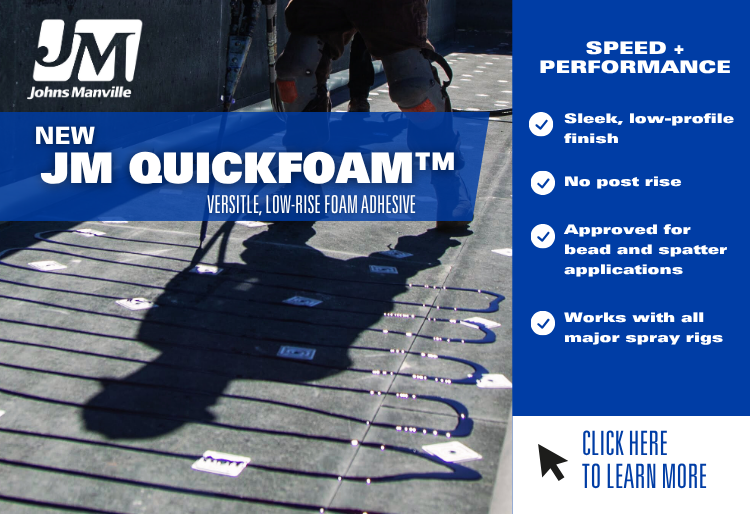



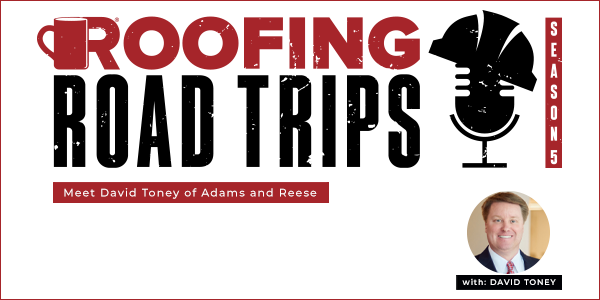
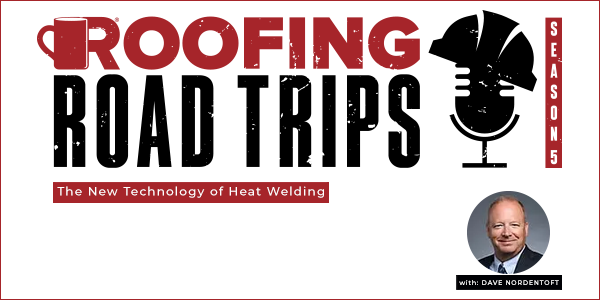
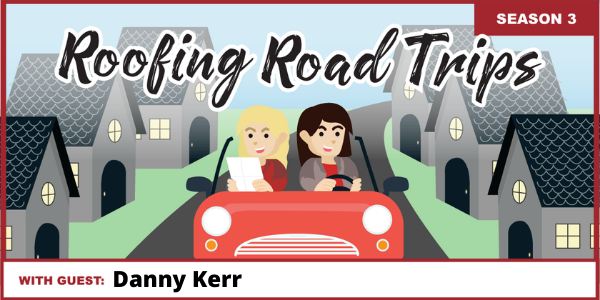
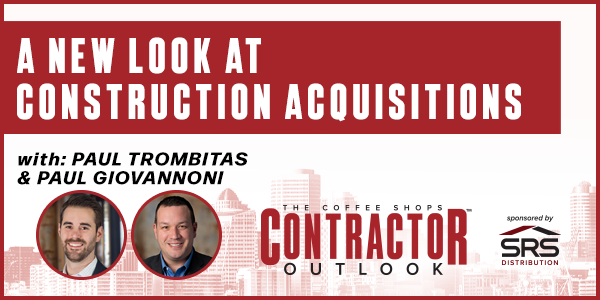

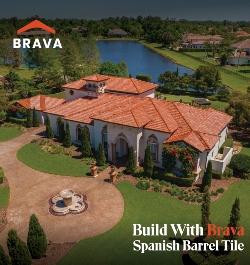

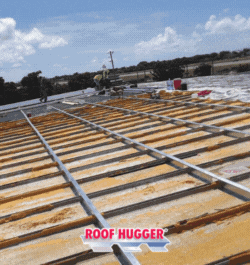

Comments
Leave a Reply
Have an account? Login to leave a comment!
Sign In